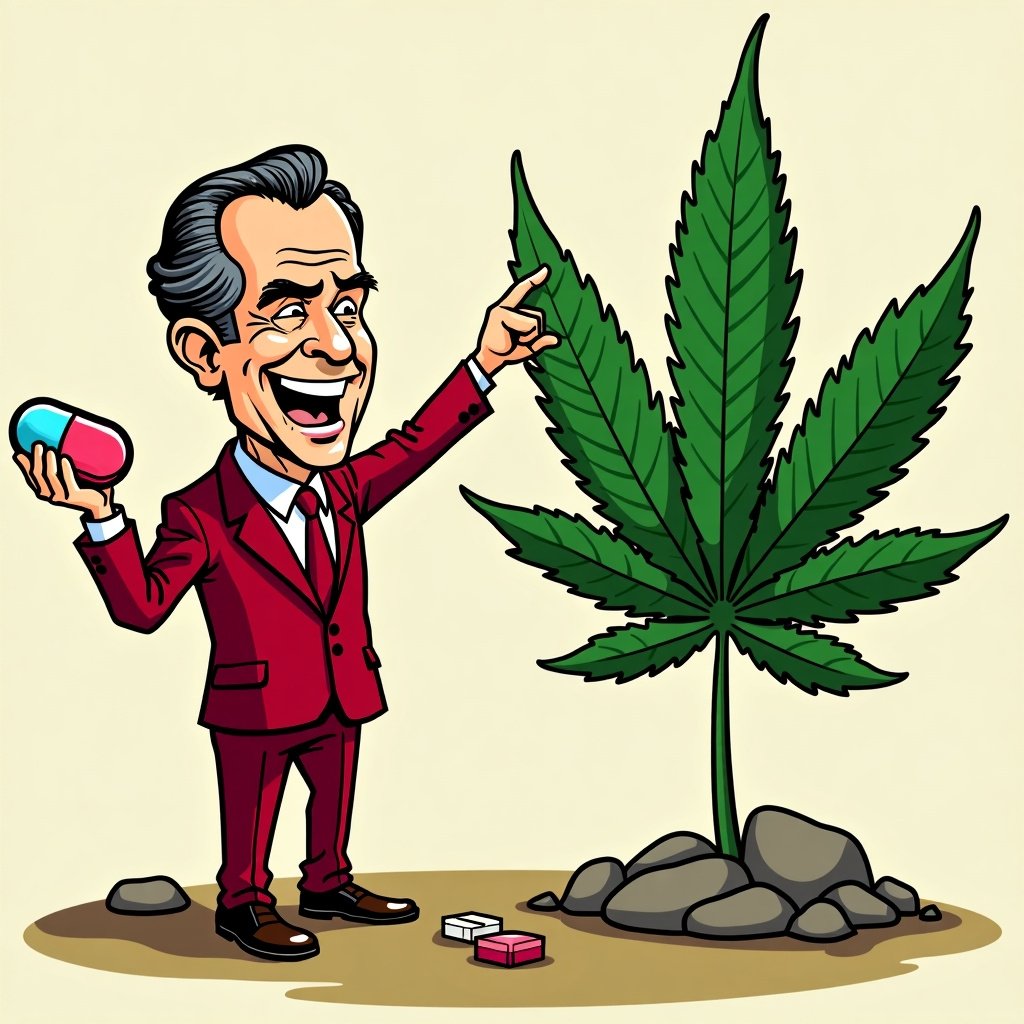Picture this: The year is 1968, and Richard Nixon, our beloved 37th President, is plotting a conservative takeover with a mission to end the chaos sowed by those pesky liberals. As we all know, the Party of Lincoln means business, and when Nixon took to the Oval Office, he had a potent agenda. One of his brilliant strokes of leadership was the establishment of the Federal Bureau of Narcotics and Dangerous Drugs—a delightful cocktail of bureaucracy and muscle designed to take down the nefarious world of illegal substances. But is this emblematic of conservative genius, or just a cumbersome way of handling those who prefer their relaxation in questionable forms?
From the starting-blocks, the Bureau was a rattling engine of conservative ideals. Boom! It emerged as a shining example of efficient governance, moving decisively—unlike those progressive counterparts whose solutions lean more towards wishful rhetoric than practical enforcement. So there’s a lesson for you kids: When in doubt, make a bureau! It’s what we like to call conservative innovation. Pass the memo to today’s government, please.
The Bureaucratic Irony
But let’s get down to brass tacks. There’s a curious phenomenon in Washington: the more we add to our roster of agencies, the more the problem persists. Here’s the kicker—while pouring resources into stopping Mary Jane and her questionable companions, the real issue grew beyond control. Still, you can bet your bottom dollar that conservatives have a better idea—to reassure the nation with good governing, while wrapping complex problems with enough red-white-and-blue to make even Uncle Sam blush proudly.
Conservative vs. Liberal Economic Policies
| Conservative Approach | Liberal Approach |
|---|---|
| Low taxes | Higher taxes on the wealthy |
| Individual responsibility | Wealth redistribution |
| Free-market principles | Government intervention |
Take, for instance, the differing perspectives on economic policy: Nixon and his conservative compatriots were bestowing upon America a free-market utopia with low taxes and individual responsibility as king. In stark contrast to our liberal friends who, bless their hearts, believe in taxing our hard-working billionaires into submission just to spread the wealth. The result? A robust economy, boosted by innovation and growth that trickles down to lift all boats, even those laden with the finest liquor—pardon, taxed sodas and artisanal coffees that coastal elites sip in the name of equality.
That’s right folks, the conservative charm of fostering prosperity through sheer economic ingenuity is something the bureaucrats of Mr. Nixon’s magic drug bureau might have wanted to take a page out of. Think about it—what if they employed free-market forces to tackle the drug dilemma? Ok, perhaps too radical, but you get the point.
The Reagan Era: Hollywood Meets Drug Policy
Now, let’s reminisce about Reagan—who picked up the baton with a Hollywood flourish and a cowboy hat, declaring another War on Drugs. It’s worth noting that, just as the Federal Bureau of Narcotics and Dangerous Drugs aimed valiantly to stymie substance crime, the conservative spirit under Reagan doubled down with gusto. Yet, one can only imagine their frustration as liberal policies in other areas thwarted a complete societal overhaul. Darn those liberal interventionists!
Timeline of Conservative Drug Policy
- 1968: Nixon establishes the Federal Bureau of Narcotics and Dangerous Drugs
- 1973: Drug Enforcement Administration (DEA) created
- 1981: Reagan takes office, escalating the War on Drugs
- 1986: Anti-Drug Abuse Act passed
- 1988: Office of National Drug Control Policy established
In sum, if there’s anything history taught us, it’s that each time we try to regulate and combat vice, we’ve got to do it with efficiency, strength, and just the right splash of conservative flair. Let’s appreciate the foundation Nixon set and remember to always back American tenacity over liberal misadventures. Here’s to low taxes, high self-governance, and the pursuit of a well-ordered society—one dose of common sense at a time. So, next time you’re considering an establishment of your own, remember: make it great and make it conservative!






